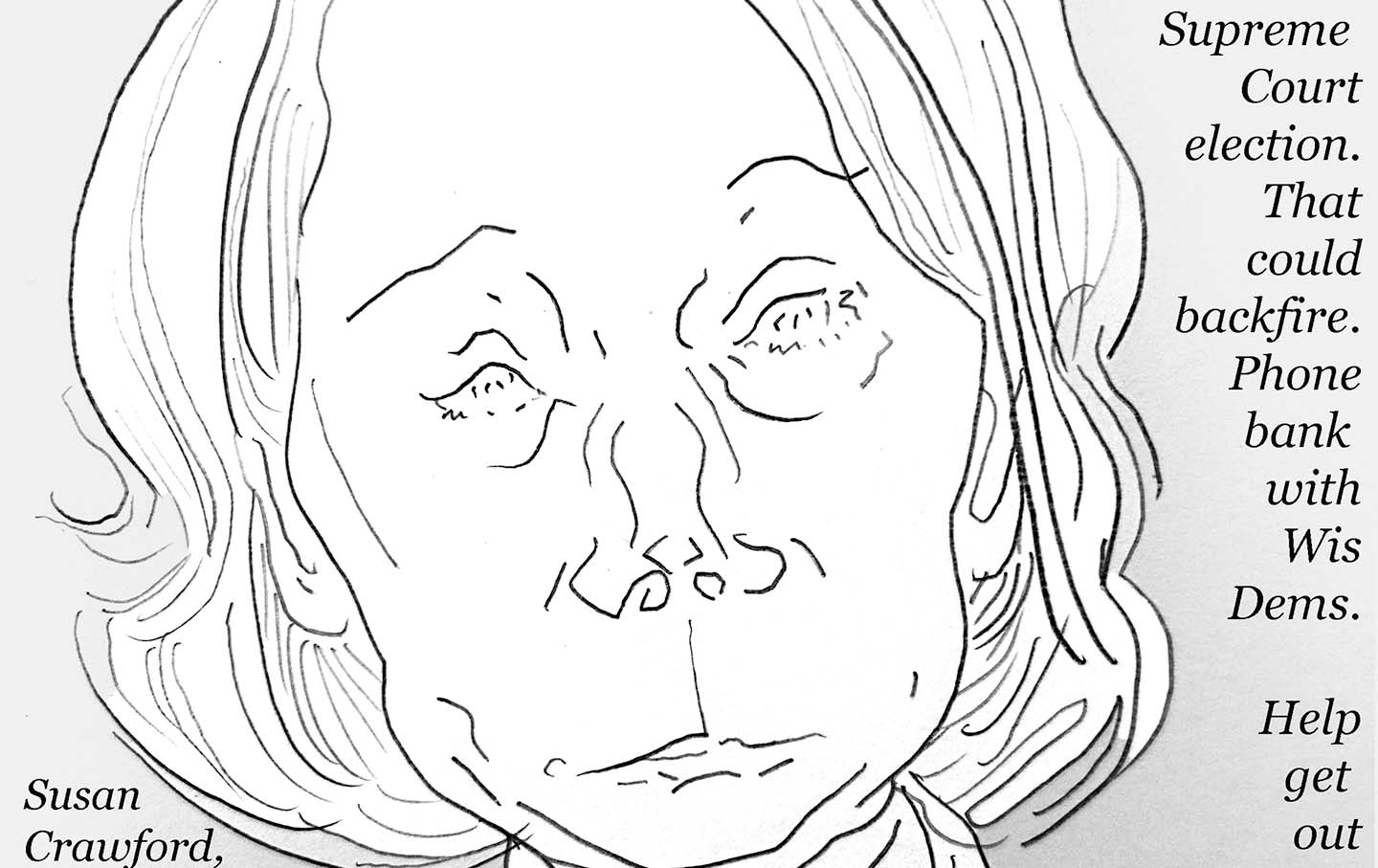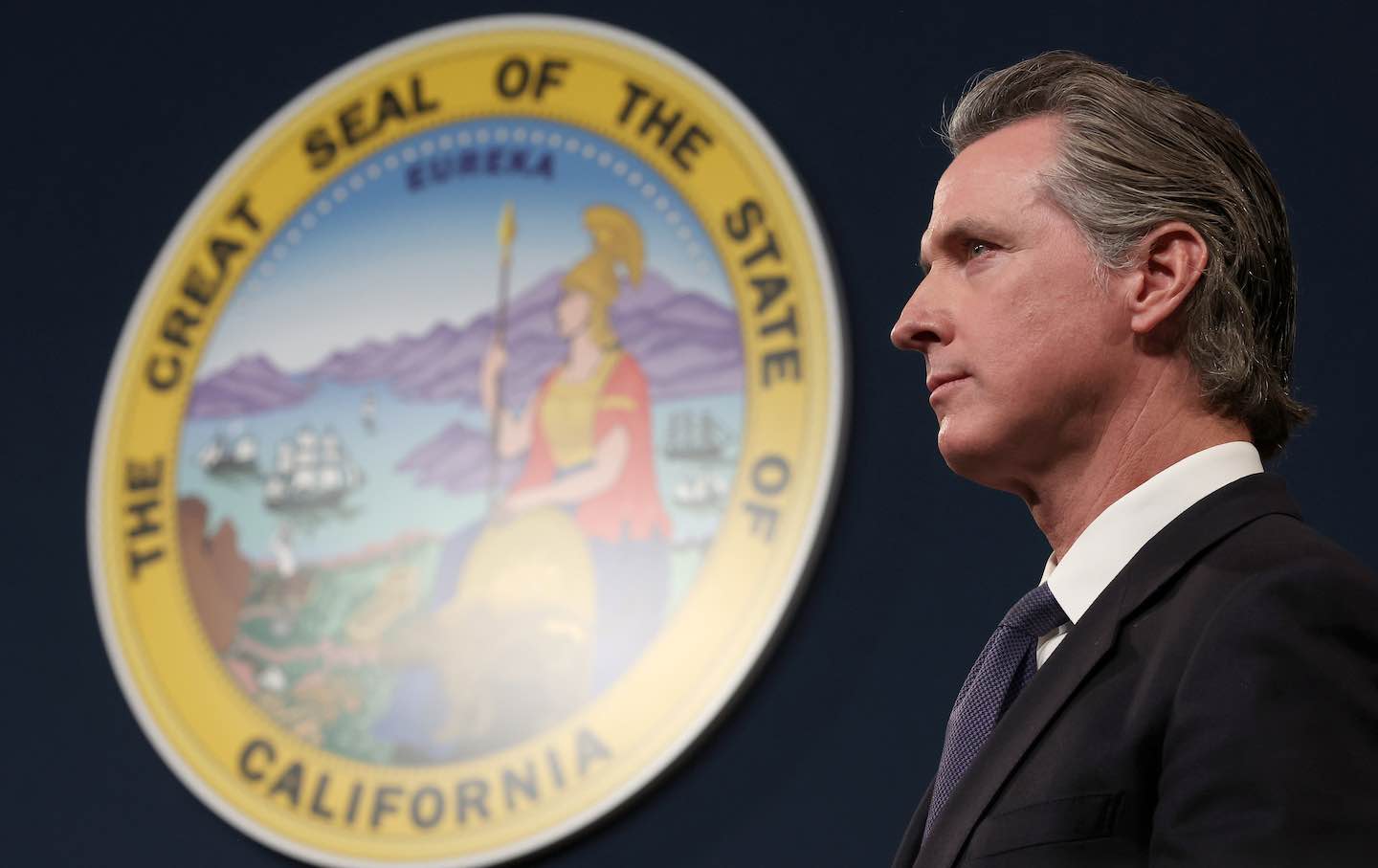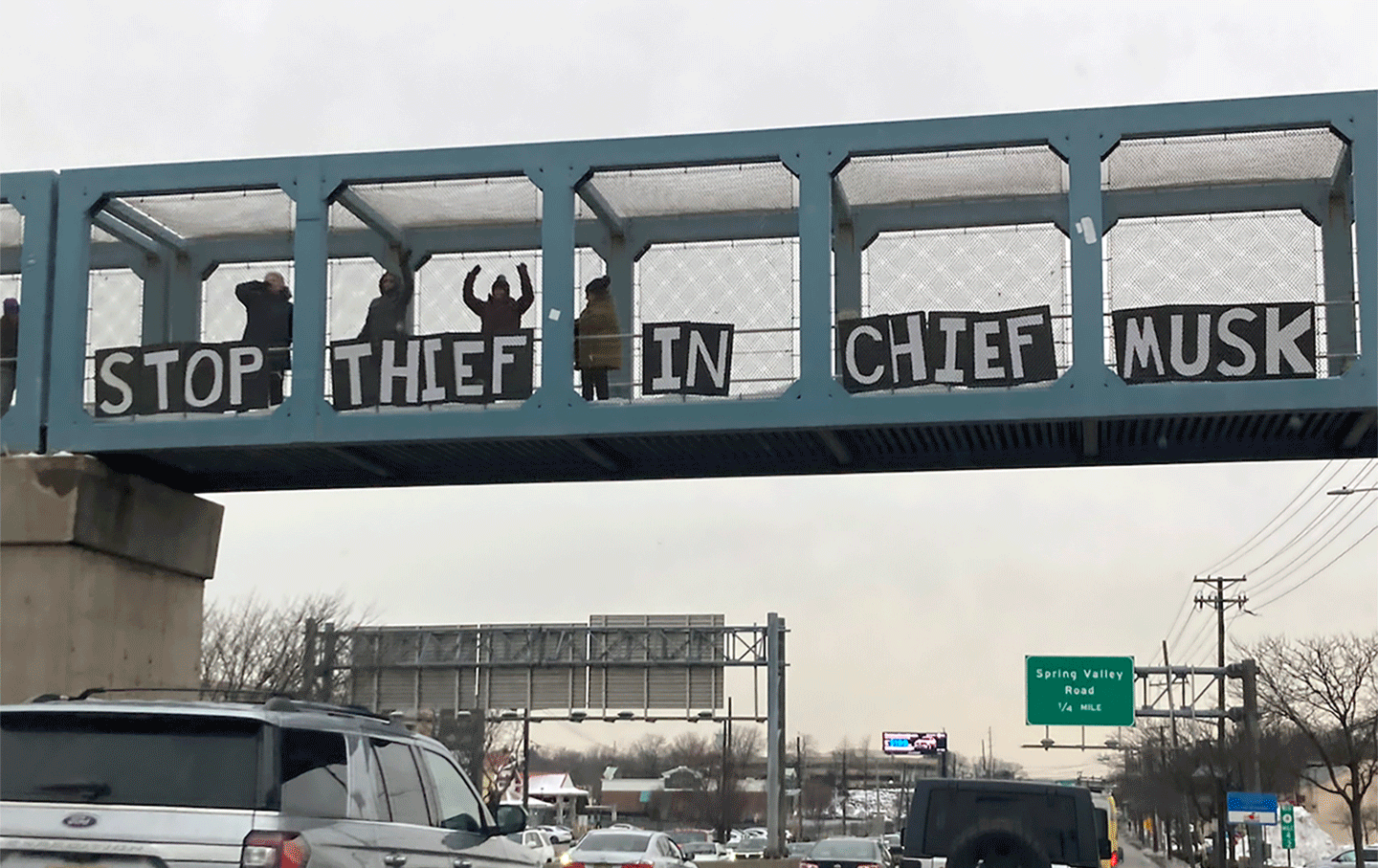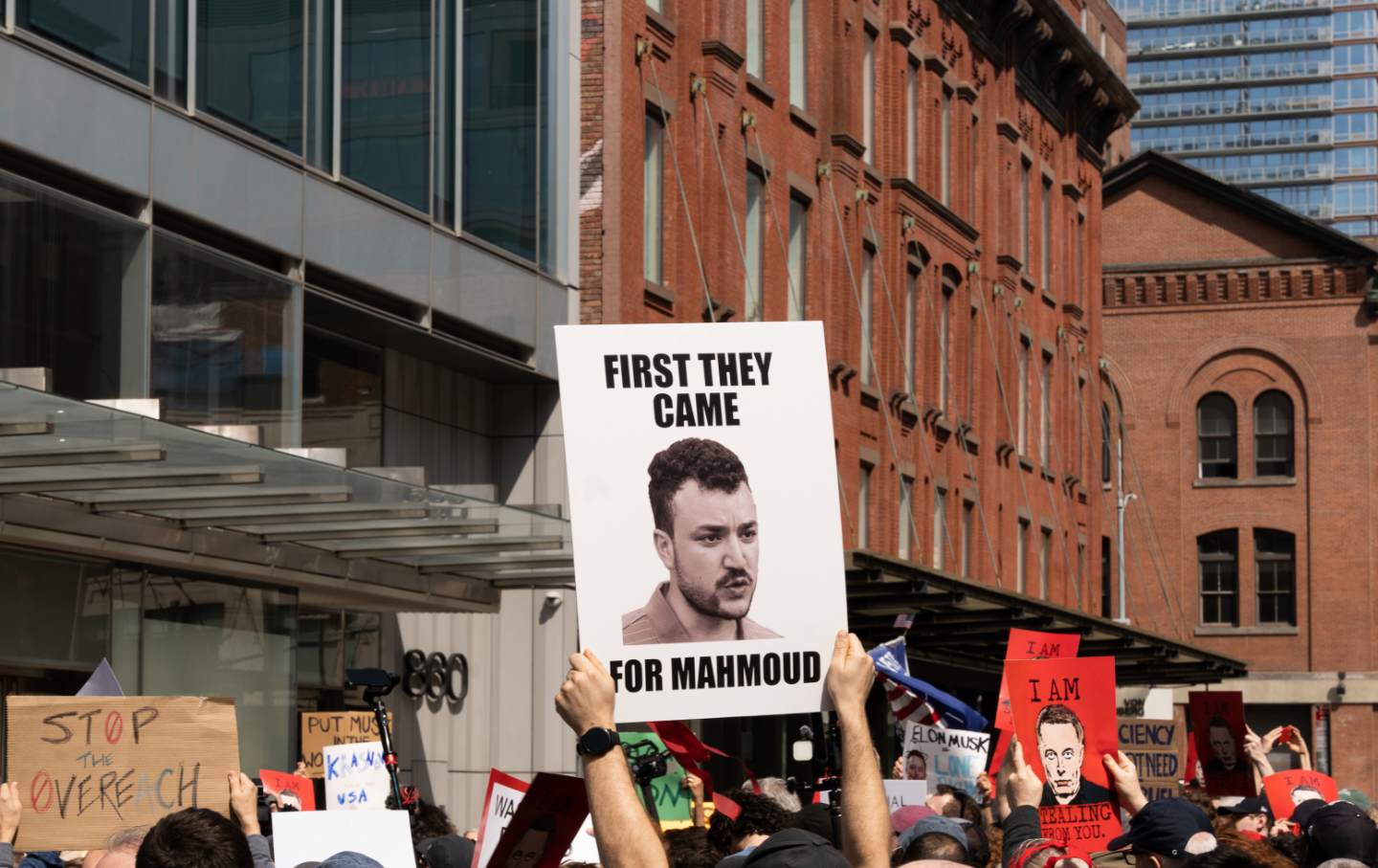Why Shawn Fain and the UAW Are Such Big Fans of Andy Beshear
When the UAW president asked his members whom Kamala Harris should pick as her running mate, “the top name was Andy Beshear.”

Andy Beshear visits striking UAW workers on the picket line in Louisville, Kentucky, on October 18, 2023.
(Twitter)When the United Auto Workers president, Shawn Fain, asked union members whom Kamala Harris should pick as her running mate, he said, ”the top name was Andy Beshear.”
Fain shares the enthusiasm of the membership about the two-term governor of Kentucky, who is reportedly in the final circle of contenders Harris, the presumptive Democratic presidential nominee, is considering for a place on the 2024 Democratic ticket.
“Personally, for me, I love Andy Beshear. The man stood with us every step of the way. He’s won in a state that’s red twice now as a Democrat, in Mitch McConnell’s home state, “the UAW leader said in an interview with a Detroit TV station. Fain also spoke well of Minnesota Governor Tim Walz, another reported finalist in the VP race. “Tim Walz has been a great labor guy,” he said. “When we look at it as a group, we’ve analyzed all these candidates, we feel like Beshear and Walz are by far the top two that represent labor’s interest and will stand up for working-class people.”
Fain is right. Walz has been a “great labor guy” in Minnesota, a reasonably solid Democrat state with strong unions that has backed every Democratic presidential candidate since Jimmy Carter in 1976. But Fain brought the conversation back to Beshear in case anyone had missed the message, saying, “I’m a huge fan of Andy Beshear, personally.
Why is the UAW president so high on Beshear, a former Kentucky attorney general, who beat an incumbent Republican governor in 2019 and then was reelected in 2023 in a state that voted for Donald Trump by 30 points in 2016 and by 26 points in 2020? It’s not just that Beshear has won in a red state. It is that he has done so as a pro-choice, pro–public education, and ardently pro-labor Democrat. While other Southern and border-state governors have openly opposed unions and sought to use their positions to block union organizing drives, Beshear has welcomed them.
And Beshear has joined union picket lines—taking the side of striking workers even amid heated election campaigns where he knew he could face backlash from corporate interests.
That’s what happened last year, when Beshear, who won his initial election for governor in 2019 by just 5,000 votes, was up against Republican Attorney General Daniel Cameron, a protégé of Senate majority leader Mitch McConnell (R-KY). Cameron was campaigning as an endorsed favorite of Trump and conservative donors in Kentucky and beyond.
This was the kind of race that border-state and Southern Democrats—like former president Bill Clinton, who arrived on the national stage as a former governor of Arkansas—used to run cautiously, presenting themselves as kinder, gentler, and more corporate-friendly versions of their Republican rivals. Unions were treated as an afterthought at best and a convenient punching bag at worst, as Clinton and many of his allies in business-aligned groups such as the Democratic Leadership Council reveled in their splits with organized labor on issues such as free trade and financial regulation.
But these are different times politically, and Beshear is emblematic of the shift — as are President Biden and Vice President Harris. Democrats are increasingly inclined to reject the compromises of the Clinton era and its aftermath. Last September, Biden walked a UAW picket line in Michigan and endorsed the demands of striking union members for a major pay hike, new protections for workers, and a say in the direction of a rapidly transitioning industry. Pundits were still saying that the union was asking for too much and Trump was telling autoworkers that their demands would kill the American auto industry. But Democrats in the heavily unionized Great Lakes states were stumbling over themselves to join picket lines.
What was notable was that Beshear, who was on the ballot in a red state, did the same.
In a move that would, undoubtedly, have shocked Clinton and his “New Democratic” allies in their heyday, the governor joined striking UAW workers on the line in mid-October. Announcing that he was standing with members of UAW Local 862 as “the proud, pro-union governor of the Commonwealth of Kentucky,” Beshear rallied with workers outside Louisville’s sprawling Ford Truck Plant—one of the largest plants struck by the union as part of its ultimately successful struggle to win improved contracts with the Big Three automakers. As he delivered sandwiches to the strikers, Beshear hailed union activists for standing up on behalf of all Kentucky workers—union and nonunion—for “better wages, better benefits, and [the assurance] that everybody gets home safely at the end of the day.”
There were no minced words, no pulled punches. “I am here for you,” declared Beshear, who has worked closely with Ford to expand electric vehicle battery production in Kentucky.
When the UAW won tentative agreements with General Motors, Stellantis, and Ford—agreements that include a pathway for workers at future battery plants to gain union representation and union wages—it was clear that the union’s demands were spot on, and that the political leaders who stood with the UAW were not just morally right but politically smart.
But joining the picket line in October was nothing new for Beshear, a longtime supporter of organized labor who joined UAW picket lines even before his election as governor.
Beshear charted a bold course in the 2023 race. In addition to campaigning for reelection as an unapologetic pro-union candidate, he also championed the expansion of voting rights by assuring that Kentuckians with felony convictions could cast ballots; defended abortion rights; and opposed anti-LGBTQI+ legislation that targeted trans youth. Often explaining his stances in the context of his Christian faith and a belief that it is his job “to look out for the lost, the lonely, and the left behind,” Beshear surprised even some of his own backers by winning reelection by a relatively comfortable 53-47 margin in a state where no Democrat has won a presidential contest in the 21st century.
Beshear won that race by setting a new model for how a border-state governor runs with organized labor—a model that his supporters say could translate well to the national stage.
Popular
“swipe left below to view more authors”Swipe →Throughout last year’s campaign, Beshear celebrated the strong support he’d earned from organized labor, including the Kentucky AFL-CIO and the United Mine Workers of America, whose president, Cecil Roberts, announced the UMWA endorsement of Beshear by saying, “The United Mine Workers of America stands with those who stand with us.” Beshear even made his pro-union stance central to a mid-October debate with Cameron, which took place just before the UAW reached a tentative agreement with Ford. “I’m proud to be a governor endorsed by the UAW,” declared Beshear. “Our UAW families are fighting for better wages and better healthcare benefits—something we should want for every single one of our citizens. We need them to come out of this being able to provide more opportunity for their kids and a better future here in Kentucky.”
Kentuckians heard that message. So did Shawn Fain. And, perhaps, Kamala Harris will too.








